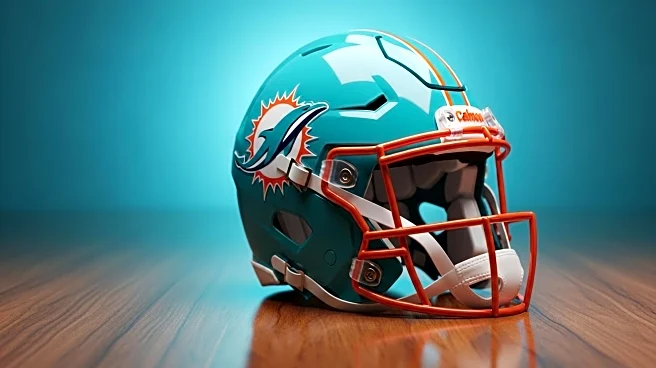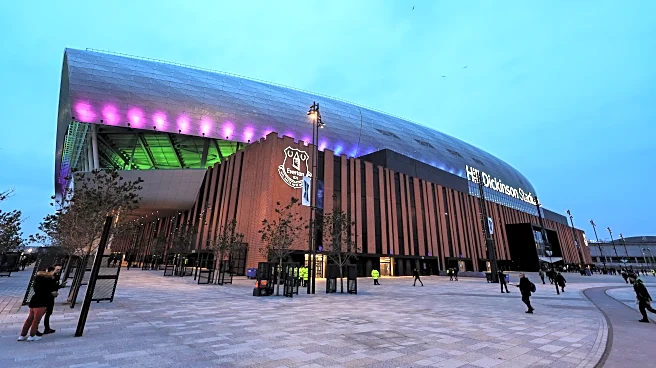What's Happening?
Miami Dolphins quarterback Tua Tagovailoa has sparked controversy following his team's 29-27 loss to the Los Angeles Chargers. Tagovailoa, instead of taking responsibility for the defeat, revealed internal
team issues, suggesting a lack of leadership and commitment among players. His comments have intensified scrutiny on both him and head coach Mike McDaniel, as the Dolphins struggle with a 1-5 record this season. The team's only win came against the New York Jets, and their playoff chances are dwindling. Tagovailoa's remarks have raised questions about the team's dynamics and whether changes are needed in leadership or player roles.
Why It's Important?
The situation is critical for the Miami Dolphins, who are facing a potential turning point in their season. With playoff hopes fading, the team must address internal conflicts and performance issues. Tagovailoa's comments have put pressure on the franchise to evaluate its leadership structure, possibly leading to significant changes. The Dolphins have invested heavily in Tagovailoa, with a four-year, $212.4 million contract extension, yet the team has not achieved a playoff win since 2000. The outcome of this situation could impact the team's future strategy, affecting both the quarterback and coaching roles.
What's Next?
The Dolphins are approaching a crucial decision-making period. With their playoff chances at a mere 3%, the team must decide whether to continue with Tagovailoa and McDaniel or consider a reset. The upcoming game against the Atlanta Falcons could further influence this decision. The franchise may need to reassess its leadership and player commitment to improve performance and team cohesion. The potential for a hard reset looms, with the possibility of changes in key positions to steer the team towards success.
Beyond the Headlines
Tagovailoa's comments highlight deeper issues within the Dolphins organization, including leadership challenges and player accountability. The situation raises ethical questions about transparency and communication within sports teams. It also underscores the pressure professional athletes face in balancing personal performance with team dynamics. The Dolphins' response to this situation could set a precedent for how sports franchises handle internal conflicts and public disclosures.










